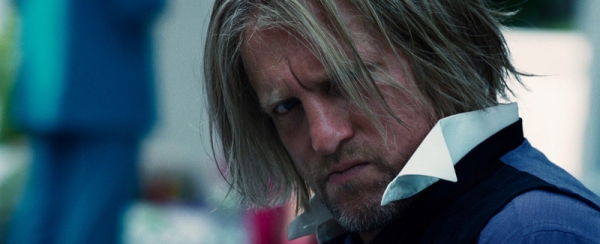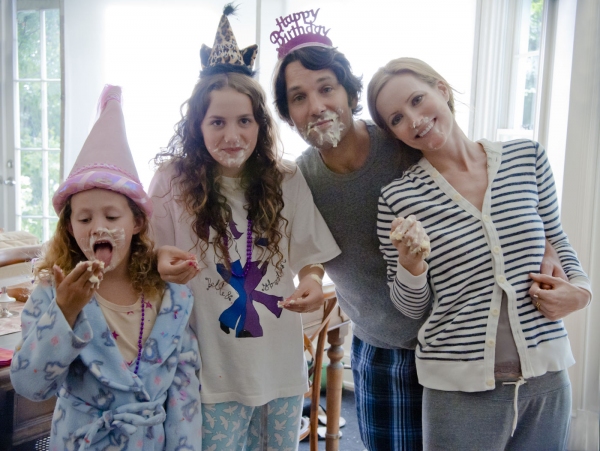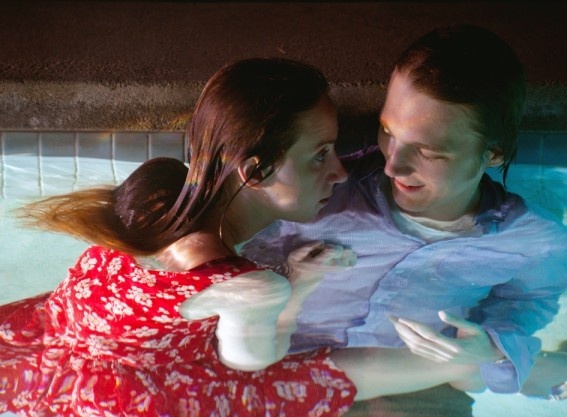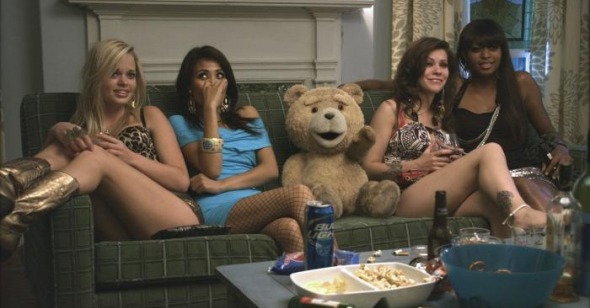In last year’s 11 Offenses column, Eric Hynes wrote, “One day we’ll all look back on this era of Hollywood comedy and just marvel at the desperation, monotony, condescension, misogyny, inhumanity, ineptitude, nihilism, infantilism, and staggering scarcity of funny.” Suggesting that not much has changed, this year’s list contains five American comedies (not including the indie film The Comedy, which is not, in fact a comedy—discuss); that’s more supposed rib-ticklers than in any previous Offenses edition. Is it perhaps unfair to single out for disdain what are by-design negligible entertainments? We’d argue it isn’t, as, with some exceptions, mainstream American comedy has become the last bastion for conservatism and outmoded bigotry in our cinema. Some will do anything for a laugh, and often that means giving in to base instincts. As proven below, many comedies hate us, so we hate them right back.
Of course, these are not the only types of films that stoked our ire in 2012. Some films wanted to be funny, while another just wanted to be Funny Games. Then there was the most cloying of Sundance breakouts, and the most idea-free “idea-driven” science-fiction epic in many a moon.
[Capsules written by Julien Allen, Leah Churner, Fernando Croce, Eric Hynes, Michael Koresky, Adam Nayman, Nicolas Rapold, Jeff Reichert, Andrew Tracy, Genevieve Yue, and Farihah Zaman.]
Ted
You know what every unfunny twelve-year-old, from here to Helsinki, has done at some point? Picked up a stuffed animal and made it say “Fuck.” And this is what counts as universalism, not to mention the pinnacle of Hollywood comedy, for the year of our lord two thousand and twelve. This doesn’t really cover the breadth of what Ted had in store for 18-and-over ticket buyers this summer, but by being merely childish, lazy, and creatively bankrupt, it is actually the film’s least hateful aspect. The latest low point of our cultural plunge into stunted male narratives, Ted asks us to accept not only that a deadbeat moron (Mark Wahlberg, who should know better by now) is ultimately worthy of a perfectly lovely and offensively tolerant babe (Mila Kunis, this year’s Thankless Comedic Love Interest), but also that the talking, coke-snorting, high-lariously racist/misogynist/everything-ist teddy bear of the title makes him worthy, in a labored, convoluted third-act complete with a Christlike, stuffing-spilled death and needle-and-thread resurrection. Writer/director/mid-cult-juggernaut Seth McFarlane can’t stage, shoot, or sell a scene to save his smug life—witness any moment in which Giovanni Ribisi’s wild-eyed jive burns up screen time—but he fares far worse when in his supposed wheelhouse: peddling eighties pop culture references as clever meta-comedy. It’s a shtick that can stick on Family Guy, but here comes off as desperately cloying, a humping of shared generational touchstones (Flash Gordon is so awesomely bad, amirite Gen-Xers?) more pathetic, and far less knowing, than anything Lawrence Kasdan ever schmaltzed up. Then there’s the Asian bating (chop-socky, chinky chicken lovers are so awesomely bad, amirite?) which continues unabated in American comedies as if Mickey Rooney’s ping-pong-balls-in-the-cheeks act in Breakfast in Tiffany’s were a point of national pride rather than of disgrace, and another raft of rousing homophobia, the last two shining beacons of mainstream scorn—or mainstream scorn as imagined by supposedly liberal Hollywood. But no Ted detail is more depressing than the appearance of Norah Jones, who marks the year of her legendary father’s death with an apparently career-forward cameo as a Norah Jones, teddy bear fucker. Glad you don’t take yourself seriously, Norah, because Seth McFarlane and his legion of misanthropic piglets sure as shit don’t either. —EH

Prometheus
Picking nits with Prometheus’s plot is beside the point, although there are enough of them—gross, itchy, nagging little buggers—to choke even the hungriest chimpanzee. (Okay, here’s one: when Noomi Rapace runs in bruised, tummy-stapled, and hysterical and explains to characters who’ve never liked or trusted her in the first place that they need to begin a kamikaze mission based on events they didn’t witness, why do they so quickly and enthusiastically assent?). What’s really wrong with Ridley Scott's long-gestating prequel to his career high-water mark is its fundamental misunderstanding of its own genetic material. The original 1979 Alien is really a very simple thing: a haunted-house movie that substitutes a rusty old spaceship for a creaky old mansion and a rubbery extraterrestrial critter for a ghost. The elements that made it both a massive hit and an enduring object of academic study—from its anti-corporatist anxiety to its vagina-dentata art direction to its distaff-warrior protagonist—were surface maneuvers that neither interfered nor intersected with the underlying machinery. (“Its structural perfection is matched only by its hostility,” said Ian Holm’s android antagonist, distilling the film’s purity in the same breath as its inhuman title character). Prometheus, though, means to go deep, like to the core of human existence, and in doing so crash-lands in a smoking crater of reverse-engineered master-narrative nonsense (“We have met the Alien…and He is Us”) and muddled mythicism. By trying to retroactively justify the immense cultural fallout and industry impact of his superbly executed, pre-CGI B-movie by recasting it and its sequels as nothing less than events in the history of faith, Scott reveals himself as at best a dupe dragged along by a screenwriter in fanboy thrall to a franchise, and at worst as a doddering hack pissing away—or rather all over—his legacy. Either way, it’s not a good look—no, Sir. —AN

Michael
The chilly spirit of Michael Haneke hangs like a death shroud over this nasty little experiment in audience discomfort made by Haneke’s fellow Austrian and former casting director Markus Schleinzer. Haneke did not invent but has surely belabored a particular kind of sterile, art-cinema detachment that has been in play since the nineties. Say what you will about Haneke’s motives—his penchant for narrative withholding is nothing if not canny and effectively unsettling. Here’s an example of Schleinzer’s tactics, however: the titular, nebbishy protagonist-with-a-secret (Michael Fuith) enters the basement lair where he keeps young Wolfgang (David Rauchenberger) prisoner, and shuts the door behind him; after the camera lingers for a moment, Schleinzer cuts to a shot of Michael from the back, washing his genitals at the bathroom sink. Let your imagination run wild, folks! This sort of distasteful (Funny-) game-playing with the viewer defines Michael, which is what happens when an influential artist’s style becomes another, much less talented director’s borrowed mannerisms. This is not a film about the psychology of pedophilia, or even the banality of evil. Rather it’s an extended, self-serving bit of flimflam preoccupied only in making its viewers fill in narrative points it is (rightly) unwilling to provide and to force us to identify with its central monster by serving up tedious, warmed-over Hitchcockian suspense tactics. Michael is hit by a car (in a silly shock take right out of Meet Joe Black): what will happen to Wolfgang if he doesn’t get home from the hospital? Michael gets lost in a skiing trip: what will happen to Wolfgang? And so on. Combining an academic, self-conscious meditation on filmic subjectivity (or something) with ripped-from-the-headlines prurient subject matter, Michael is rancid from conception, but the movie also looks horrible, from one ugly, predictably static composition to the next. And just in case you suspect the film might not take itself seriously, after its final cut to black (which, in its cowardly ambiguity functions as a major slap in the audience’s face), Schleinzer treats us to fifteen seconds of black screen before the credits. And when they scroll, it’s to Bobby Hebb’s upbeat disco hit “Sunny,” clearly intended as a boldly incongruous choice. Like everything else, though, it is the same old song—completely, tiresomely expected. Go back to finding actors for Haneke to torture and leave us alone, Schleinzer. —MK

Beasts of the Southern Wild
Hooray for experiences unique to seeing movies in theaters: the greatest sensation that Beasts of the Southern Wild produced for me was the alienation of emerging from a feature-length seethe to find myself ever alone in my displeasure, surrounded by applause that was like instrumental accompaniment to the final blasts of that insufferable score. No doubt my response was the polar opposite of the film’s vibe, which is one of down-home, feel-good unity in this crazy old universe (and boo-hoo for me, I know). This was my second time seeing the film and the first at a public screening; I had been hoping that the critical echo chamber enjoyed by the film since its Sundance Triumph™ would collapse into dust under the unforgiving gaze of a paying audience who would spot its brand of hokum from a mile away. My feelings about the movie are already on record with more specificity (to which I would add a referral to Nick Pinkerton’s Sight & Sound critique of the film’s “mist of romanticism” and “cozy kitsch under cover of art”), so allow me to express here my continued bafflement at the dippy hyperbole bestowed upon it. “Teeming with creativity in every aspect of its being,” Beasts is apparently a “poster child for everything American independent cinema aspires to be but so seldom is,” a piece of filmmaking “nearly overshadowed by its own virtuosity,” and, my favorite piece of mush, a work “committed to profundity” (the campaign promise of a philosopher-king?). Of the unspecified reviewers quoted above, J. Hoberman at least framed his praise, as ever, with a double-edged formulation: it’s also “a fairytale for adults, made with kids.” Go forth and catch up with the movie at home, and enjoy yourself enjoying the experience again for the first time. —NR

The Comedy
Who lives in Brooklyn? “Privileged, aging hipsters,” to quote Rick Alverson’s director’s statement in the press kit for The Comedy. Feckless, fat, and unemployed, these hipsters, who inhabit dingy terrariums high above the L line, can be spotted on the streets, sporting too-small sunglasses and unbuttoned shirts, or in dive bars, quaffing their trust funds one can of Pabst at a time. Even if you don’t personally know a soul who fits that description, you’re familiar with the stereotype, right? Meet Swanson (Tim Heidecker), a well-heeled 35-year-old driven by boredom to ever-heightening summits of rascality. Like a plus-sized goblin, he stirs the city’s melting pot, creeping into the hospital rooms of unconscious geriatric patients, snuffing out prayer candles in church, and lobbing insults at service-industry workers all over the ethnic rainbow. For all its racy racism, toilet talk, and cross-pollinations of the two (doing an impression of a plantation slave, Swanson admonishes his sister-in-law for “rub[bing] shit on her vagina”), the real problem with this “pitch black” (Film Threat) “generational statement” (indieWIRE) is its suffocating pretension. That director’s statement is full of phrases like “promise of the free market,” “progressive American exceptionalism,” and (oh god) “American dream.” Alverson expects us to engage with these Big Ideas while gazing upon the impossibly cool party face of James Murphy, who has no lines and serves a purely decorative function. Perhaps there’s a level of doubled-back irony I’m missing here. —LC

Bachelorette
Here’s the premise of Leslye Headland’s jaw-droppingly mean-spirited Bachelorette: it is perfectly normal (and, evidently, hilarious) for a woman to feel resentful, even cheated, if a friend who is heavier than her gets married first. As a coven of rank, reductive stereotypes, Kirsten Dunst (the type-A queen bee), Lizzy Caplan (the slut), and Isla Fisher (the ditz) run all over town the night before the wedding of their “friend” (Rebel Wilson), shitting on her dreams and cackling about it like drunk gibbons high from rolling around in their own filth. Worse, the viewer is clearly meant to empathize with their hateful (but, oh so universal) envy in some way; that, for example, when Dunst calls her friend “pig-face” behind her back and mocks the size of the wedding dress she ruined, women should think, even if shamefully, “My true self has been finally represented in cinema.” Despite the assertion of some (usually older male) critics that the script gets at something essential about young female friendships, in the opinion of this real-life woman with friends, “raw” does not equal “more real.” Bridesmaids was far more relatable in its depiction of women going wild while trying to work through their neuroses, and at least The Hangover, the other film Bachelorette is frequently compared to, has no pretensions that it is expressing something dark but vital about human nature. These are disgusting, wretched people, and not in a way that makes the film funny (like Girls) or insightful (like Heathers) or even, frankly, watchable. No matter how transgressive the filmmakers may think it is to make their female protagonists nasty and foul-mouthed, the film ends up supporting rather than lampooning the caricature of women as competitive, self-loathing, marriage-obsessed harpies—all of whom, I began wishing barely halfway in, would start elaborately murdering each other, as in some wedding-themed Battle Royale. —FZ

The Hunger Games
London’s Evening Standard recently featured a picture of Jennifer Lawrence in skin-tight leopard print trousers bent over the bonnet of a shiny red Alfa Romeo, her face turned to the camera, her fuck-me expression framed by a Bardot-esque bouffant and a headline: “Hunger Games star: ‘I struggle with fame just like in the film.’” Well, I’m glad somebody's got a sense of humor about it. Adult fans of children’s fiction revere the Hunger Games trilogy as a timely, gripping portrayal of a prophetic future wherein children are ritually exploited for adult entertainment in a reality-style death tournament—albeit one with lots of random characters with silly names. The film fancies itself as a satire, but it’ll take more than Toby Jones in a pompadour to persuade us this is anything other than purest untouched Hollywood venality, as crass as Dicky Attenborough pretending to flog Jurassic Park lunchboxes, and in much worse taste. Apocalyptic levels of humbug reside in its dramatization of hysterical hero worship, when Lionsgate had busily commissioned trench-loads of posters and figurines of all the candidates, surpassed only by the transparency of the film’s real driver: some of the children chosen for this sick death race are “good” and some are “bad” (a.k.a. disposable). The nastiest of the lot is Cato, who is devoured by dogs. A scintilla of redemption before he becomes Purina dog chow suggests the filmmakers might have grasped something about where they were going wrong. Then they kill him anyway (lest the teen audience’s appetite for revenge not be fully sated). Never mind that it’s a colossal, Carolco-style action mess (The Running Man’s aesthetics come to mind a lot)—the realpolitik on show here tells you everything you need to know about Hollywood’s own dystopia. —JA

Silver Linings Playbook
If the truly appalling reduction of mental illness to endearing quirkiness in David O. Russell’s generally well-acted and wholly misbegotten mix of faux-unvarnished psychodrama and meet-cute rom-com makes it difficult to focus on any of the film’s other sins, its paucity of visual imagination should not go unremarked upon. Employing a haphazardly edited, snatch-and-grab style that fearlessly disregards the matching of actors’ energy levels and spatial positioning from shot to shot, throwing in a couple of half-ideas to mix things up a bit (e.g. an unmotivated camera push-in on Bradley Cooper’s unbalanced charmer during one of his screwball jogging encounters with Jennifer Lawrence goth-dream-girl; some assertive panning between the two during their first non-date at a diner) and capping the whole with an ostentatious stylistic flourish (the same high-speed track-back with which he opened The Fighter), Russell offers a veritable primer in directorial heedlessness. It’s a scrum mentality: the camera is simply tossed into the middle of the action and the scene is then patched together from the record of the poor thing’s cumulative buffetings. While dithering over such aesthetic niceties might seem a tad out of proportion in light of a film that makes bipolar disorder as adorable as a Hello Kitty T-shirt, the two work in tandem to reduce the scope of imaginative experience. Refusing to see differently (or even just well), Silver Linings Playbook likewise has no aim other than to reconcile difference to prefab notions of normality. —AT

This Is 40
Billed as “the sort-of sequel to Knocked Up,” This Is 40 is really more of a follow-up to Funny People; in other words, it’s the gigantic ball of bellybutton lint that follows militant navel-gazing. In it, the worldview of writer-director-comedy impresario Judd Apatow shrinks to no more than a couple of Beverly Hills blocks, where chatter of financial woes is refuted by insanely lavish impromptu vacations and a solitary non-Caucasian character is introduced only to have his accent mocked. Cataloging the expectations, irritations, and meltdowns of a married couple (Paul Rudd and Leslie Mann) as they approach their dreaded 40th birthday, the movie is an amalgam of punchlines and ruminations that’s undeniably heartfelt in its sentiments of anxiety and hope. It is also intolerably self-absorbed, structurally formless, complacently littered with brand names and pop references (it opens with a Viagra joke, climaxes with a viewing of Lost, and closes with a quip from One Flew Over the Cuckoo’s Nest), and pockmarked with bits in which the camera stares dead-eyed as the filmmaker’s friends, wife and two small daughters take their time with their microwaved stand-up routines. Little more than an extended middle-aged crying jag in which the mandatory goofing-around-while-high-as-a-kite montage is presented as a moment of “emotional honesty,” the vaporous This Is 40 is perhaps best summarized by a scene in which a hemorrhoid-fearing Rudd engages in some literal cavity self-searching—an accidental acknowledgement of authorial solipsism that, like the rest of the movie, doesn’t so much elevate Apatow’s brand of frat-house comedy as disgrace the art of the personal film. —FC

Anna Karenina
Joe Wright’s Pride and Prejudice so cleverly balanced dollops of à la mod stylistic flourishes with a restrained classicism and respect for its literary source that I was convinced we’d witnessed the birth of the first middlebrow British filmmaker worth talking about since who knows when. Later, I wrote after seeing Wright’s third film, “If he’s smart, and if The Soloist connects with audiences, he’d do well to push the long takes and odd visual tics sprinkled through his first three features as far as they can go.” Well, I’ve now seen what that “as far as they can go” looks like, and I hope to take no responsibility for the train wreck that is his Anna Karenina. Wright’s big idea for Tolstoy’s big novel was to shoot the thing all in one location, a massive theater space that could be continually adapted, redressed and repurposed as the film wore on—artifice substituting for realism, creating a carnivalesque yet cinematic atmosphere. Never shy about tossing off a purposeless tracking shot where no one asked for it, Wright conceives of this boundless space as a place where he can move his camera at will and constantly, but more often than not in this boring spectacular, it seems like he’s got the thing pointed in the wrong direction. He’s assembled a large cast of performers who try their best (Jude Law struggles mightily, admirably), but Wright’s conceit overwhelms all, thus rendering inert and lifeless two of the most powerful romances—Anna and Vronsky, and Levin and Kitty—in literature. How can we expect to fall in love with tender Levin and dear Kitty when we are almost constantly whooshing by them as we advance to the next scene? How can we feel for tragic Anna when every time we see her there’s a wall of a new set being flown in by a beefy grip dressed as a Cossack? Wright’s take on Karenina is certainly audacious, and I’m usually all for ambition-over-execution, but this is truly the most dunderheaded literary adaptation in recent memory (and this was the year that saw the release of Cloud Atlas, no less). It’s a gassy bloated conceit expelled into the world as one big, wet fart. —JR

Ruby Sparks
The Pygmalion myth has had its fair share of screen time, the latest and one of the most bloodless being Ruby Sparks. Ostensibly inoffensive, the film is generally well written, gamely acted, and its tweeness is tastefully toned down (in interviews writer and star Zoe Kazan has been quick to proclaim her displeasure with the word “quirky”). And with references to things like Platonic idealism and The Great Gatsby, the film at least aims to be smarter than the average indie rom-com, though admittedly the bar is fairly low. The problem, however, is that the film misidentifies itself as such, when its premise—Calvin, a reclusive young author (Paul Dano), who writes his dream girlfriend, Ruby (Kazan), into existence—lands it squarely in the realm of psychological horror. Perhaps because Dano is Kazan’s real-life partner, she refrained from writing him a part that veered too far into the dark territory demanded by the film’s setup, namely its issues of control, obsession, and, as too few critics observed, a deeply disturbing misogyny. Against his horndog brother’s rather unimaginative suggestion of augmenting Ruby’s breasts, Calvin sanctimoniously vows never to “tweak” his creation until, of course, he does. In the one scene bold enough to live up to the film’s twisted premise, he types increasingly degrading commands that Ruby must obey, to the point where she’s barking on all fours, an act that’s dehumanizing for both writer and his Galatea. Too soon, however, the film neatly papers over the disorder unleashed by Calvin’s recklessness. What’s offensive here isn’t the darkness of his deeds, but the film’s hasty willingness to redeem him. In a truly horrifying conclusion, Calvin gets the last thing he deserves: a second chance. —GY
